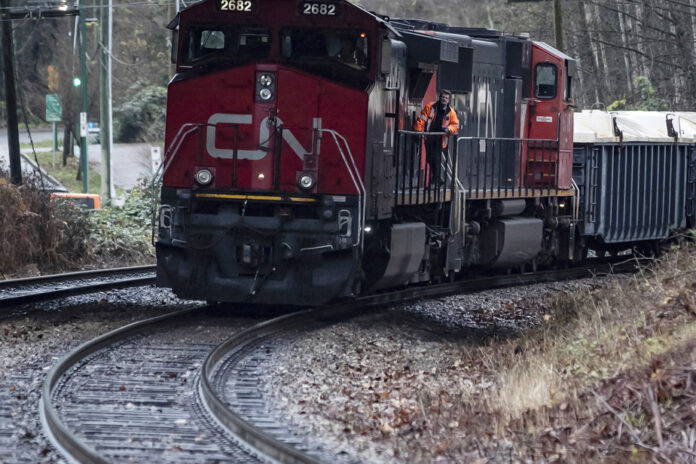The Canadian National Railway Company lowered its profit forecast for the current fiscal year on Tuesday, posting lower profits and revenues for its second quarter, in a gloomy economic environment.
The nation’s largest railroad is now banking on flat or slightly lower adjusted earnings for its 2023 fiscal year. Three months ago it expected growth of around 5%.
Weaker customer demand and interruptions due to wildfires had particularly impacted freight service, particularly for containers, crude oil, grain exports and forest products, noted the Minister. Canadian National (CN).
But chief executive Tracy Robinson assured the company’s goal of accelerating profitable growth through 2026 and beyond was still on track.
“Longer-term fundamentals remain strong. The opportunities for growth are real,” she told analysts on a conference call, noting that metrics for on-time performance, safety and speed had all improved from 2022.
However, there is “a bit more weakness on the economic front,” meaning overall shipments will likely continue to decline throughout the year, Robinson continued. Weaker demand, especially for container freight, is likely to continue into 2024, she added.
The forecast contrasts with the sunny outlook offered by the CEO three months earlier, although many expected the economy to be in contraction for much of the year.
A roughly two-week strike by British Columbia stevedores earlier this month halted freight flows through west coast terminals, compounding demand issues.
The disruption will have a “minor impact” on current quarter earnings, CN marketing director Doug MacDonald said. He projected it would take eight weeks to recover the backlog caused by the labor dispute.
For the second quarter ended June 30, CN posted second-quarter net income of $1.17 billion, down 12% from $1.33 billion in the same period a year earlier.
Its revenue for the quarter ended June 30 fell 7% to $4.06 billion, down from $4.34 billion in the same period last year.
On an adjusted basis, CN’s earnings per share slipped 9% to $1.76 from $1.93 in the second quarter last year. Analysts on average had expected adjusted earnings per share of $1.82, according to forecasts compiled by financial data firm Refinitiv.















